(新课标) Unit 1 Section A 3a-3c 课件 (新目标英语七下 Unit 1 Can you play the guitar?)
文档属性
| 名称 | (新课标) Unit 1 Section A 3a-3c 课件 (新目标英语七下 Unit 1 Can you play the guitar?) |
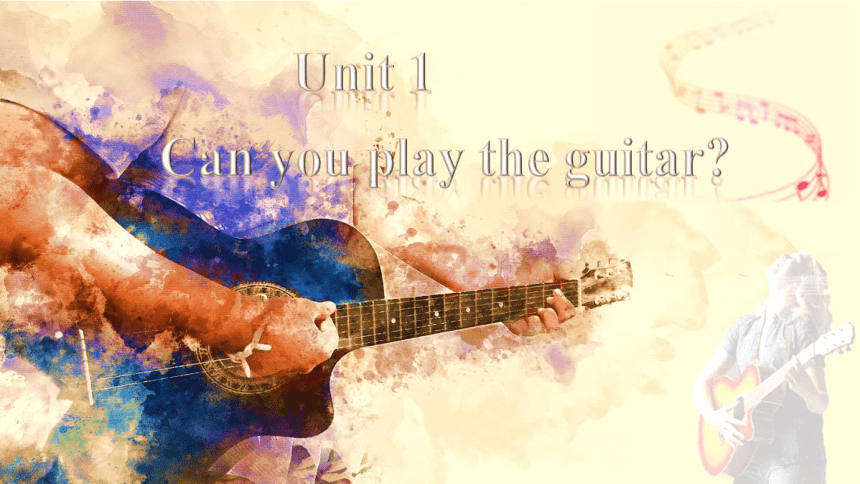
|
|
| 格式 | pptx | ||
| 文件大小 | 16.9MB | ||
| 资源类型 | 试卷 | ||
| 版本资源 | 人教新目标(Go for it)版 | ||
| 科目 | 英语 | ||
| 更新时间 | 2024-06-09 20:58:50 | ||
图片预览

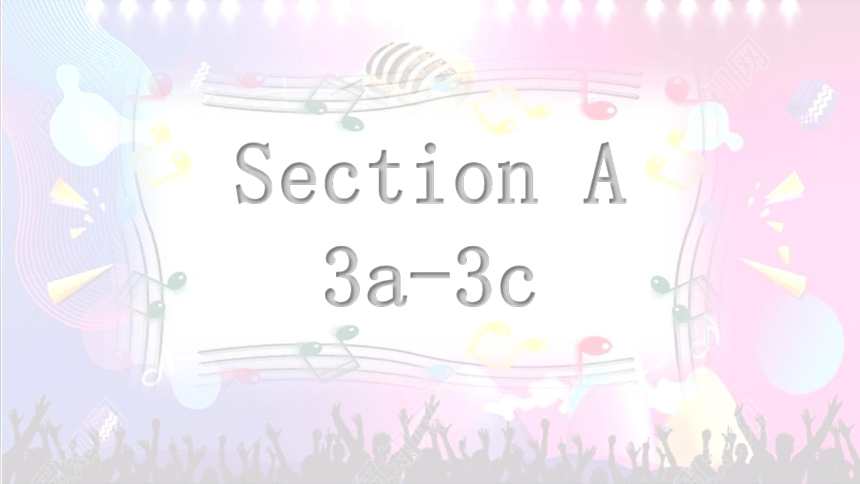
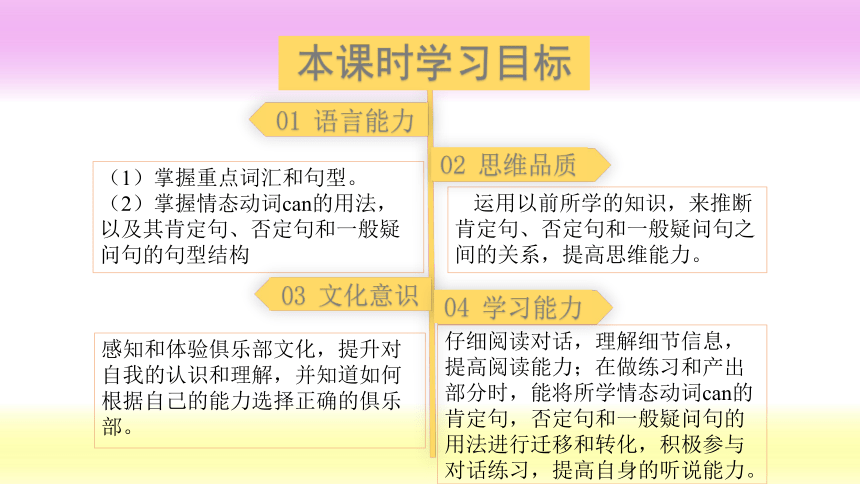
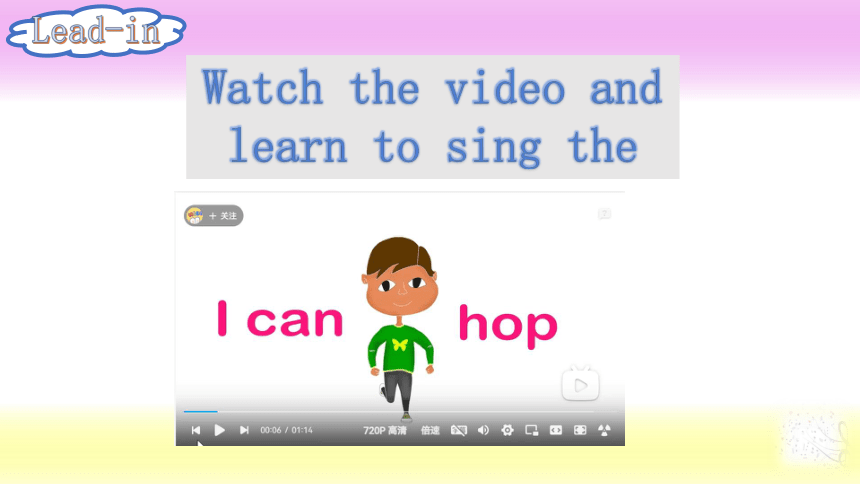
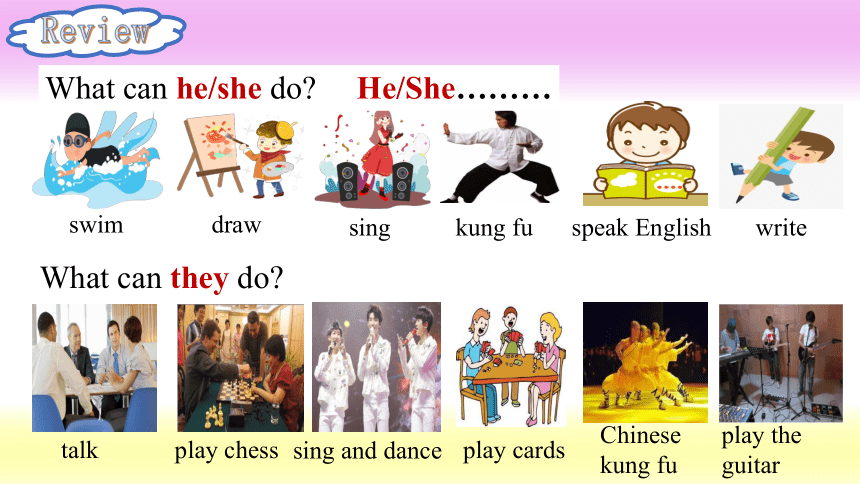

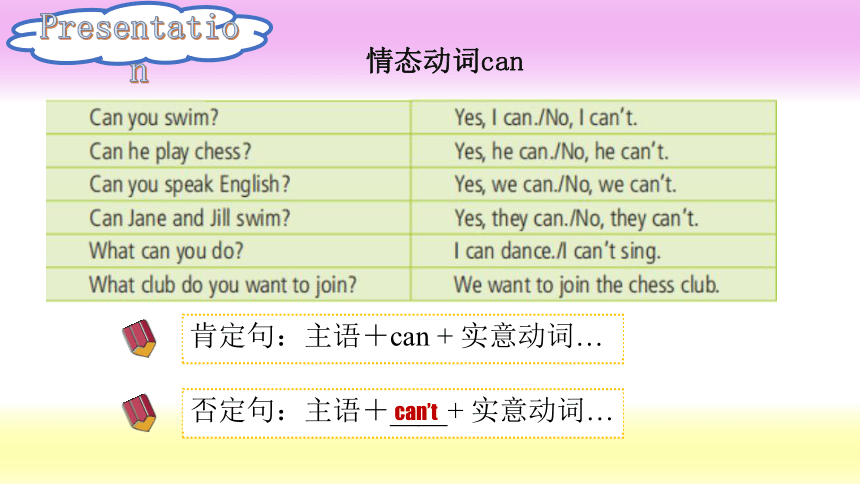
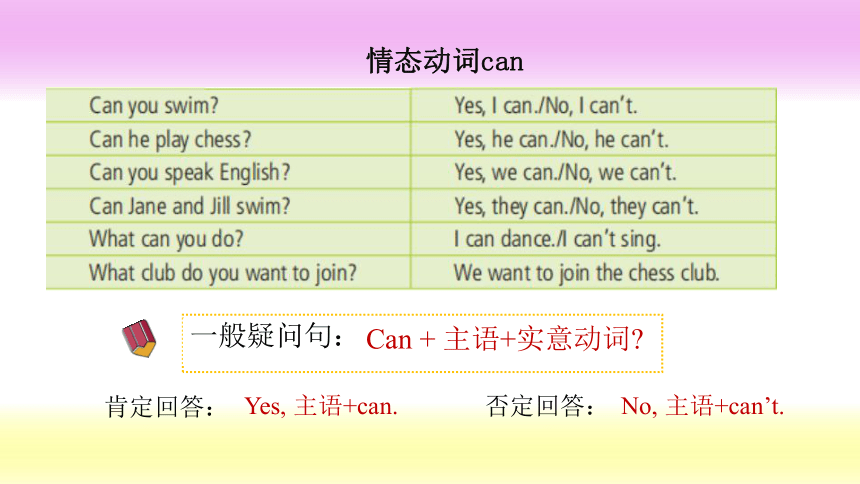
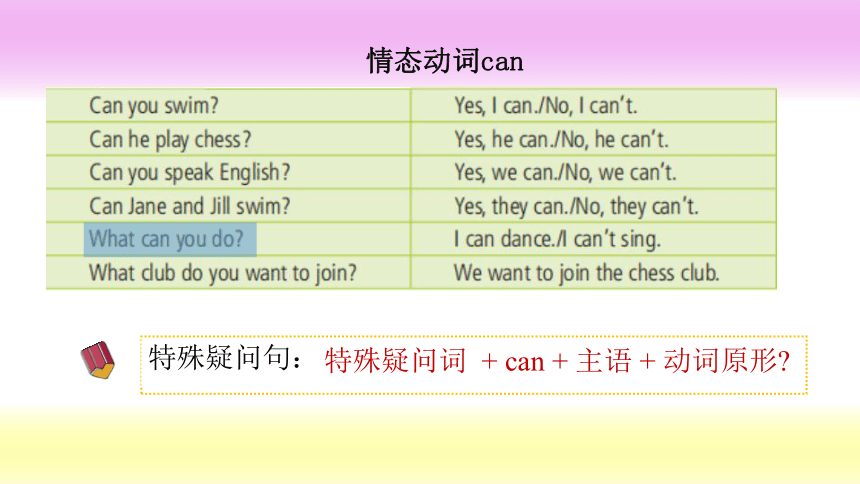
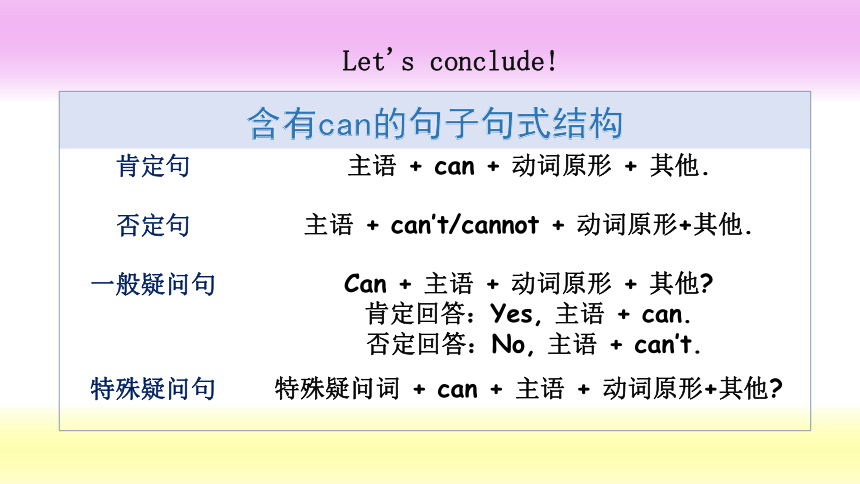
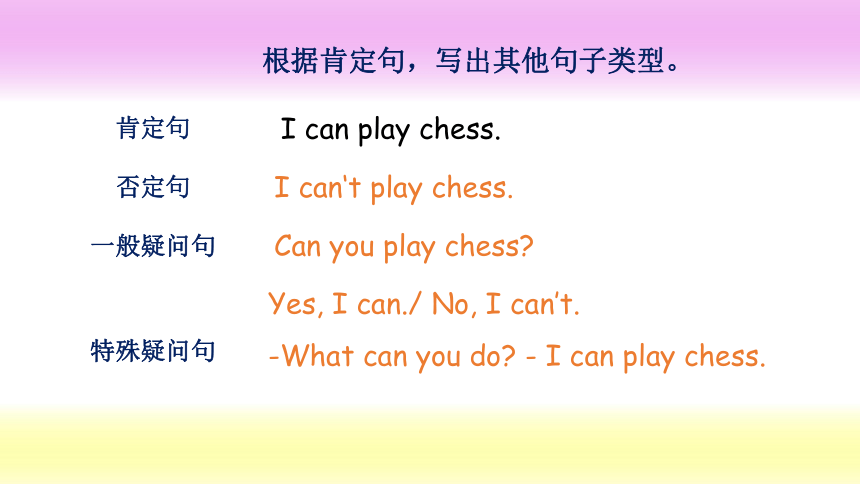
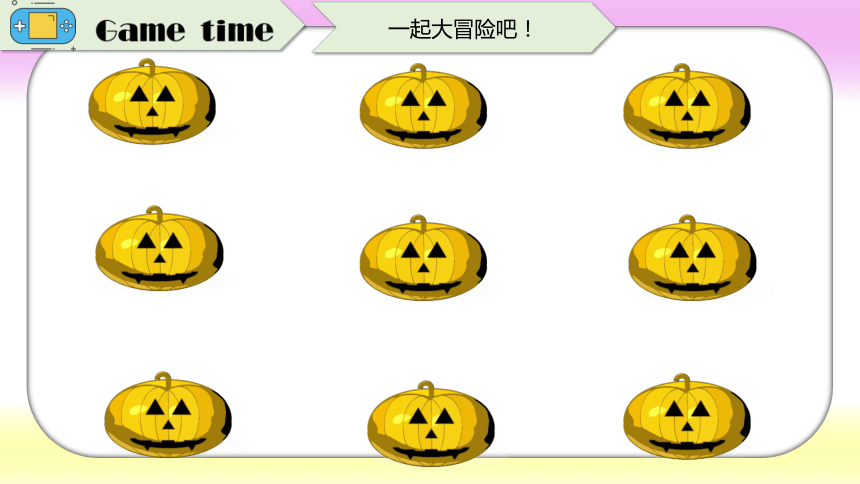
文档简介
(共45张PPT)
Section A
3a-3c
(1)掌握重点词汇和句型。
(2)掌握情态动词can的用法,以及其肯定句、否定句和一般疑问句的句型结构
感知和体验俱乐部文化,提升对自我的认识和理解,并知道如何根据自己的能力选择正确的俱乐部。
运用以前所学的知识,来推断肯定句、否定句和一般疑问句之间的关系,提高思维能力。
仔细阅读对话,理解细节信息,提高阅读能力;在做练习和产出部分时,能将所学情态动词can的肯定句,否定句和一般疑问句的用法进行迁移和转化,积极参与对话练习,提高自身的听说能力。
本课时学习目标
01 语言能力
02 思维品质
03 文化意识
04 学习能力
Lead-in
Watch the video and learn to sing the song.
swim
draw
sing
kung fu
write
What can he/she do He/She………
What can they do
talk
speak English
play chess
sing and dance
play cards
Chinese
kung fu
play the
guitar
Review
What clubs do you have in your school
What can you do
What club do you want to join
Free talk
情态动词can
肯定句:主语+can + 实意动词…
否定句:主语+____+ 实意动词…
can’t
Presentation
情态动词can
一般疑问句:
肯定回答:
否定回答:
Yes, 主语+can.
No, 主语+can’t.
Can + 主语+实意动词
情态动词can
特殊疑问句:
特殊疑问词 + can + 主语 + 动词原形
含有can的句子句式结构
肯定句 主语 + can + 动词原形 + 其他.
否定句 主语 + can’t/cannot + 动词原形+其他.
一般疑问句 Can + 主语 + 动词原形 + 其他
肯定回答:Yes, 主语 + can.
否定回答:No, 主语 + can’t.
特殊疑问句 特殊疑问词 + can + 主语 + 动词原形+其他
Let's conclude!
肯定句
否定句
一般疑问句
特殊疑问句
根据肯定句,写出其他句子类型。
I can play chess.
I can‘t play chess.
Can you play chess
Yes, I can./ No, I can’t.
-What can you do - I can play chess.
1
2
3
4
5
6
7
8
9
一起大冒险吧!
Can ......
Yes, ____ can.
No, _____ can’t
soccer / you
swim / she
Can ......
Yes, ____ can.
No, _____ can’t
dance / they
Can ......
Yes, ____ can.
No, _____ can’t
play chess / he
Can ......
Yes, ____ can.
No, _____ can’t
speak English/ they
Can ......
Yes, ____ can.
No, _____ can’t
draw / my brother
Can ......
Yes, ____ can.
No, _____ can’t
Wu Jun/ speak English/ speak Chinese
_____________________________________
_____________________________________
2. Mike/ play basketball/ play tennis
_____________________________________
_____________________________________
Write questions and answers with the words and phrases.
Can Wu Jun speak English
No, he can’t, but he can speak Chinese.
Can Mike play basketball
No, he can’t, but he can play tennis.
3a
3. Jane and Jill/ dance / sing
_____________________________________
_____________________________________
4. Grace/ play soccer/ play volleyball
_____________________________________
_____________________________________
Can Jane and Jill dance
No, They can’t, but they can sing.
Can Grace play soccer
No, she can’t, but she can play volleyball.
5. Bill/ write stories/ tell stories
____________________________________
____________________________________
Can Bill write stories
No, he can’t, but he can tell stories.
Complete the following poster with the words
in the box.
play
sing
tell
dance
Students Wanted for School Show
We want students for the school show. Can you __________ or __________ Can you _____ the guitar Can you _____ stories Please talk to Mr. Zhang after school.
sing/dance
dance/sing
play
tell
3b
学校(文艺)表演招募学生
show n. 演出;节目 v. 给……看;展示
海报的基本要素:标题、正文(活动名称、应聘者所需才能、活动联系人)、与之匹配的图片
What can your group do in the school show
Make a list.
School Show
Sunday 6:00 p.m. in the
music room.
What can you do
Come and show us!
Name What can you do
____________________________
____________________________
____________________________
Li Xin
do kung fu
3c
Hi, I am Alan. In my group, Li Xin can do kung fu...
School Show!
Time:Sunday 6:00 p.m.
Location: music room
What can you do
Come and show us!
Report to the class. (汇报采访结果)
What can you do
sing
draw
swim
speak English
play the guitar
dance
play chess
play computer
A: What club do you want to join
B: I want to join the art club.
A: What can you do
B: I can draw.
A: Can you draw well
B: Yes, I can.
PAIRWORK
Practice
A: What club do you want to join
B: I want to join the music club.
A: What can you do
B: I can play the guitar and I can play the violin.
A: Can you play well
B: I can play the guitar well, but I can’t play the violin well.
PAIRWORK
A: What club do you want to join
B: I want to join …
A: What can you do
B: I can …
A: Can you play well
B: I can …
PAIRWORK
情态动词的概念
情态动词表示说话人对所说事情的观点,如需要、可能、意愿、怀疑等。常见的情态动词有can,以后我们还会学到may,must,have to,should,would等。
Language points
can的用法
can意为“能,会,可以”,是情态动词,没有人称和数的变化,不能单独做谓语,只能和实义动词原形或be动词原形一起构成谓语。常见用法如下:
①表示某种能力,意为“能,会”。
eg:I can speak English.我会讲英语。
②表示请求或许可,意为“可以”。
eg:You can go with your friends.你可以和你的朋友们一起去。
句子的构成
①肯定句:主语+can+动词原形+其他.
②否定句:主语+can not/can't+动词原形+其他.
③一般疑问句:Can+主语+动词原形+其他?
肯定回答:Yes,主语+can.
否定回答:No,主语+can't.
④特殊疑问句:特殊疑问词+一般疑问句?
eg:What can you do?你会做什么?
or conj. 或,或者
用于选择疑问句, 是指说话人提出两种或两种以上的答案, 供对方选择。选择疑问句多用or连接并列的成分。用于引出另一种可能性。
Is that hat red or blue?
那顶帽子是红的还是蓝的?
Is that a boy or a girl?
那个是男孩还是女孩?
Can you sing or dance 你会唱歌还是跳舞呢?
提示:
and与or都可用来连接并列的句子成份, 但and一般用于肯定句, 而or 用于疑问句或否定句。
I like action movies and comedies.
我喜欢动作片和喜剧。
She doesn’t like singing or dancing.
她不喜欢唱歌和跳舞。
He can’t write_______ read.
She can sing ______ play the piano.
He likes playing basketball______ he doesn’t like playing football.
Which watch do you like, the big one_____ the small one?
or
and
but
or
用连词 and, or, but填空。
Exercises
1. Mike can't play ________ chess.
A.the B.a C./ D.an
2. —Can aunt Wang dance
—No, she ________. But she can sing.
A.is B.can't C.do D.don't
3. Lily can ________ Chinese kung fu.
A.make B.have C.do D.think
单项选择
4. — ________
—She wants to join the swimming club.
A.What can she do
B.What club does she want to join
C.What does she like D.Where can she swim
5. —What ________ you do, Tom
—I can sing English songs well.
A.can B.can't C.must D.do
连词成句
1.play, brother, the, your, guitar, can, ( )
2.can’t, he, piano, the, play
.
3.play, you, the, can, guitar, ( )
Can your brother play the guitar
Can you play the guitar
He can’t play the piano
连词成句
4.guitar, sing, the, I, play, can, and, yes, (.)
.
5.to, club, music, join, want, do, you, our, ( )
Yes, I can play the guitar and sing.
Do you want to join our music club
选词填空用speak, say, tell或talk填空
1.My parents usually with me after work.
2.The boy can English and Japanese.
3.Please me about it when you come back.
4.—Can you your name in English
—Yeah. My name is Carl.
5.—May I to Mr. Green
—Speaking.
talk
speak
tell
say
speak
肯定句
一般疑问句
否定句
情态动词can
特殊疑问句
(1) 意为_______;有时也可表示“可能”。
(2)肯定句变否定句时,需在can后加______,其缩写形式为_____
将情态动词 can 直接放在_____,构成一般疑问句。
“能,会”
not
can’t.
句首
在一般疑问句的基础上,加___________
特殊疑问词
Summary
含can的一般疑问句
肯定回答:
否定回答:
肯定回答:
否定回答:
“OK./All right,”
“No,...can't.”
“Yes,...can.”
“No,...can't.”
1. 表示请求
2. 要求给予
许可
Summary
Level B:
Master what you have learned in this lesson.
Level A:
Finish the extra exercise in your workbook.
Homework
Enjoy your life!~
Section A
3a-3c
(1)掌握重点词汇和句型。
(2)掌握情态动词can的用法,以及其肯定句、否定句和一般疑问句的句型结构
感知和体验俱乐部文化,提升对自我的认识和理解,并知道如何根据自己的能力选择正确的俱乐部。
运用以前所学的知识,来推断肯定句、否定句和一般疑问句之间的关系,提高思维能力。
仔细阅读对话,理解细节信息,提高阅读能力;在做练习和产出部分时,能将所学情态动词can的肯定句,否定句和一般疑问句的用法进行迁移和转化,积极参与对话练习,提高自身的听说能力。
本课时学习目标
01 语言能力
02 思维品质
03 文化意识
04 学习能力
Lead-in
Watch the video and learn to sing the song.
swim
draw
sing
kung fu
write
What can he/she do He/She………
What can they do
talk
speak English
play chess
sing and dance
play cards
Chinese
kung fu
play the
guitar
Review
What clubs do you have in your school
What can you do
What club do you want to join
Free talk
情态动词can
肯定句:主语+can + 实意动词…
否定句:主语+____+ 实意动词…
can’t
Presentation
情态动词can
一般疑问句:
肯定回答:
否定回答:
Yes, 主语+can.
No, 主语+can’t.
Can + 主语+实意动词
情态动词can
特殊疑问句:
特殊疑问词 + can + 主语 + 动词原形
含有can的句子句式结构
肯定句 主语 + can + 动词原形 + 其他.
否定句 主语 + can’t/cannot + 动词原形+其他.
一般疑问句 Can + 主语 + 动词原形 + 其他
肯定回答:Yes, 主语 + can.
否定回答:No, 主语 + can’t.
特殊疑问句 特殊疑问词 + can + 主语 + 动词原形+其他
Let's conclude!
肯定句
否定句
一般疑问句
特殊疑问句
根据肯定句,写出其他句子类型。
I can play chess.
I can‘t play chess.
Can you play chess
Yes, I can./ No, I can’t.
-What can you do - I can play chess.
1
2
3
4
5
6
7
8
9
一起大冒险吧!
Can ......
Yes, ____ can.
No, _____ can’t
soccer / you
swim / she
Can ......
Yes, ____ can.
No, _____ can’t
dance / they
Can ......
Yes, ____ can.
No, _____ can’t
play chess / he
Can ......
Yes, ____ can.
No, _____ can’t
speak English/ they
Can ......
Yes, ____ can.
No, _____ can’t
draw / my brother
Can ......
Yes, ____ can.
No, _____ can’t
Wu Jun/ speak English/ speak Chinese
_____________________________________
_____________________________________
2. Mike/ play basketball/ play tennis
_____________________________________
_____________________________________
Write questions and answers with the words and phrases.
Can Wu Jun speak English
No, he can’t, but he can speak Chinese.
Can Mike play basketball
No, he can’t, but he can play tennis.
3a
3. Jane and Jill/ dance / sing
_____________________________________
_____________________________________
4. Grace/ play soccer/ play volleyball
_____________________________________
_____________________________________
Can Jane and Jill dance
No, They can’t, but they can sing.
Can Grace play soccer
No, she can’t, but she can play volleyball.
5. Bill/ write stories/ tell stories
____________________________________
____________________________________
Can Bill write stories
No, he can’t, but he can tell stories.
Complete the following poster with the words
in the box.
play
sing
tell
dance
Students Wanted for School Show
We want students for the school show. Can you __________ or __________ Can you _____ the guitar Can you _____ stories Please talk to Mr. Zhang after school.
sing/dance
dance/sing
play
tell
3b
学校(文艺)表演招募学生
show n. 演出;节目 v. 给……看;展示
海报的基本要素:标题、正文(活动名称、应聘者所需才能、活动联系人)、与之匹配的图片
What can your group do in the school show
Make a list.
School Show
Sunday 6:00 p.m. in the
music room.
What can you do
Come and show us!
Name What can you do
____________________________
____________________________
____________________________
Li Xin
do kung fu
3c
Hi, I am Alan. In my group, Li Xin can do kung fu...
School Show!
Time:Sunday 6:00 p.m.
Location: music room
What can you do
Come and show us!
Report to the class. (汇报采访结果)
What can you do
sing
draw
swim
speak English
play the guitar
dance
play chess
play computer
A: What club do you want to join
B: I want to join the art club.
A: What can you do
B: I can draw.
A: Can you draw well
B: Yes, I can.
PAIRWORK
Practice
A: What club do you want to join
B: I want to join the music club.
A: What can you do
B: I can play the guitar and I can play the violin.
A: Can you play well
B: I can play the guitar well, but I can’t play the violin well.
PAIRWORK
A: What club do you want to join
B: I want to join …
A: What can you do
B: I can …
A: Can you play well
B: I can …
PAIRWORK
情态动词的概念
情态动词表示说话人对所说事情的观点,如需要、可能、意愿、怀疑等。常见的情态动词有can,以后我们还会学到may,must,have to,should,would等。
Language points
can的用法
can意为“能,会,可以”,是情态动词,没有人称和数的变化,不能单独做谓语,只能和实义动词原形或be动词原形一起构成谓语。常见用法如下:
①表示某种能力,意为“能,会”。
eg:I can speak English.我会讲英语。
②表示请求或许可,意为“可以”。
eg:You can go with your friends.你可以和你的朋友们一起去。
句子的构成
①肯定句:主语+can+动词原形+其他.
②否定句:主语+can not/can't+动词原形+其他.
③一般疑问句:Can+主语+动词原形+其他?
肯定回答:Yes,主语+can.
否定回答:No,主语+can't.
④特殊疑问句:特殊疑问词+一般疑问句?
eg:What can you do?你会做什么?
or conj. 或,或者
用于选择疑问句, 是指说话人提出两种或两种以上的答案, 供对方选择。选择疑问句多用or连接并列的成分。用于引出另一种可能性。
Is that hat red or blue?
那顶帽子是红的还是蓝的?
Is that a boy or a girl?
那个是男孩还是女孩?
Can you sing or dance 你会唱歌还是跳舞呢?
提示:
and与or都可用来连接并列的句子成份, 但and一般用于肯定句, 而or 用于疑问句或否定句。
I like action movies and comedies.
我喜欢动作片和喜剧。
She doesn’t like singing or dancing.
她不喜欢唱歌和跳舞。
He can’t write_______ read.
She can sing ______ play the piano.
He likes playing basketball______ he doesn’t like playing football.
Which watch do you like, the big one_____ the small one?
or
and
but
or
用连词 and, or, but填空。
Exercises
1. Mike can't play ________ chess.
A.the B.a C./ D.an
2. —Can aunt Wang dance
—No, she ________. But she can sing.
A.is B.can't C.do D.don't
3. Lily can ________ Chinese kung fu.
A.make B.have C.do D.think
单项选择
4. — ________
—She wants to join the swimming club.
A.What can she do
B.What club does she want to join
C.What does she like D.Where can she swim
5. —What ________ you do, Tom
—I can sing English songs well.
A.can B.can't C.must D.do
连词成句
1.play, brother, the, your, guitar, can, ( )
2.can’t, he, piano, the, play
.
3.play, you, the, can, guitar, ( )
Can your brother play the guitar
Can you play the guitar
He can’t play the piano
连词成句
4.guitar, sing, the, I, play, can, and, yes, (.)
.
5.to, club, music, join, want, do, you, our, ( )
Yes, I can play the guitar and sing.
Do you want to join our music club
选词填空用speak, say, tell或talk填空
1.My parents usually with me after work.
2.The boy can English and Japanese.
3.Please me about it when you come back.
4.—Can you your name in English
—Yeah. My name is Carl.
5.—May I to Mr. Green
—Speaking.
talk
speak
tell
say
speak
肯定句
一般疑问句
否定句
情态动词can
特殊疑问句
(1) 意为_______;有时也可表示“可能”。
(2)肯定句变否定句时,需在can后加______,其缩写形式为_____
将情态动词 can 直接放在_____,构成一般疑问句。
“能,会”
not
can’t.
句首
在一般疑问句的基础上,加___________
特殊疑问词
Summary
含can的一般疑问句
肯定回答:
否定回答:
肯定回答:
否定回答:
“OK./All right,”
“No,...can't.”
“Yes,...can.”
“No,...can't.”
1. 表示请求
2. 要求给予
许可
Summary
Level B:
Master what you have learned in this lesson.
Level A:
Finish the extra exercise in your workbook.
Homework
Enjoy your life!~
同课章节目录
- Unit 1 Can you play the guitar?
- Section A
- Section B
- Unit 2 What time do you go to school?
- Section A
- Section B
- Unit 3 How do you get to school?
- Section A
- Section B
- Unit 4 Don't eat in class.
- Section A
- Section B
- Unit 5 Why do you like pandas?
- Section A
- Section B
- Unit 6 I'm watching TV.
- Section A
- Section B
- Review of Units 1-6
- Unit 7 It's raining!
- Section A
- Section B
- Unit 8 Is there a post office near here?
- Section A
- Section B
- Unit 9 What does he look like?
- Section A
- Section B
- Unit 10 I'd like some noodles.
- Section A
- Section B
- Unit 11 How was your school trip?
- Section A
- Section B
- Unit 12 What did you do last weekend?
- Section A
- Section B
